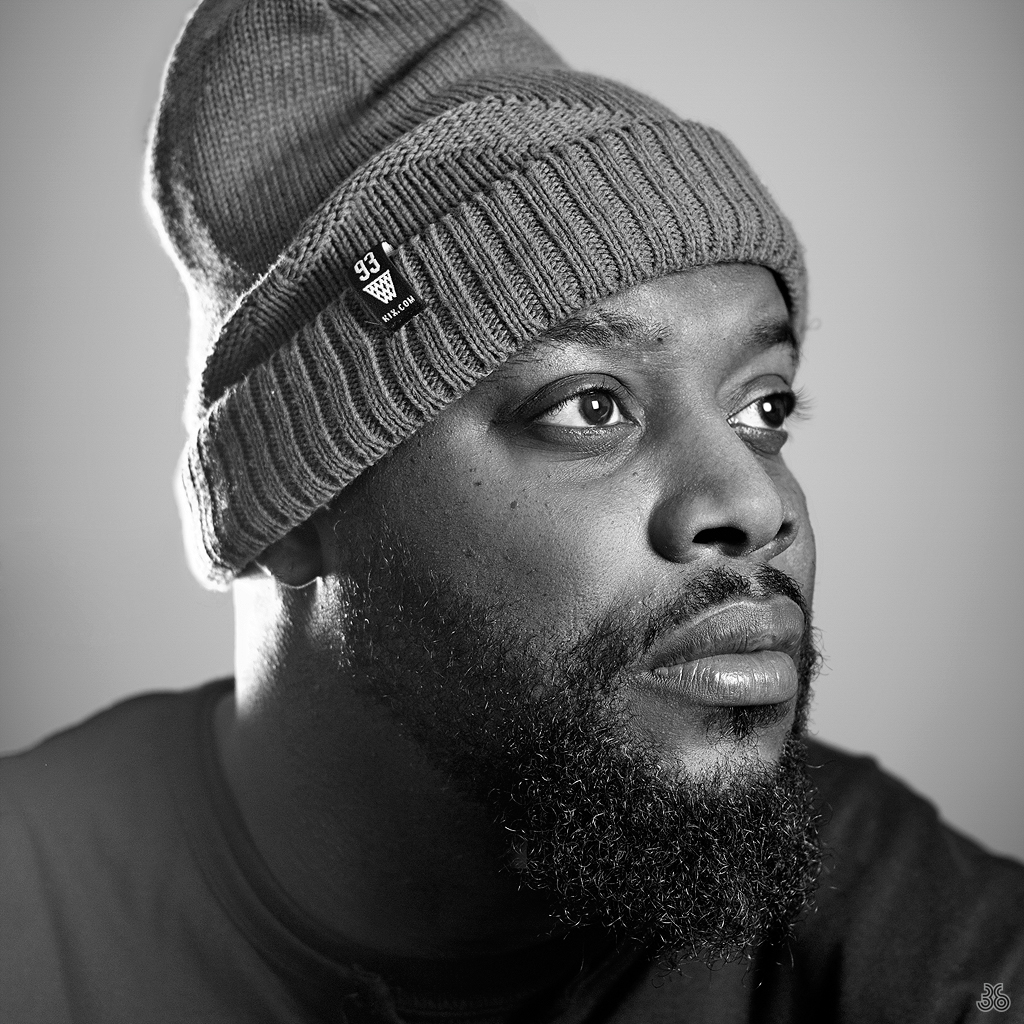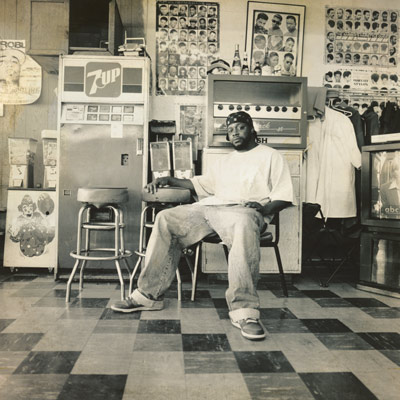Phat Kat
“Every time I step in the booth, I’m tryna make some classic shit,” promises Phat Kat, a pioneer of the Detroit hip-hop scene who was putting it down for the underground long before anyone ever heard of Eminem, Proof, D12, Slum Village, Natas, or Royce the 5’9.” And while rap from “the D” has come into the national limelight in recent years, few of Detroit’s current crop of MCs boast a track record or reputation as credible as Phat Kat. Back in the early ‘90s, Phat Kat helped to put the D on the hip-hop map as a member of First Down, pairing with legendary DJ/producer J Dilla (R.I.P.), then known as Jay Dee, years before Dilla’s involvement in Slum Village. After meeting Guru and Premier during a promotional stop through Detroit in 1994, Phat Kat gave them a demo tape – the first demo he had ever passed on to industry folks, he says — and First Down ended up getting signed to Payday records on the strength of one song, the now-classic “Front Street,” which appeared on the Representing the Streets compilation. First Down seemed poised to be one of the first Midwestern groups to blow up nationally; unfortunately, their label was folded into a much larger company and they were lost in transition. Undeterred, the MC also known as Ronnie Cash stayed on the grind in the ensuing years, appearing on albums by Dilla and Slum Village, hitting the road frequently, and releasing his first solo album Undeniable in 2004, followed in Spring 2007 by Carte Blanche, his first release for Look Records. At long last, Phat Kat notes, “I’m with a label that sees my vision.” Dilla contributes five tracks, but the work of up-and-coming producers Nick Speed, Young RJ, and Black Milk is nearly as impressive. Other guests include SV’s Elzhi and T3, Truth Hurts, Melanie Rutherford, Fat Ray, Loe Louis and Guilty Simpson. Rather than pursuing cameos and features from overexposed stars, Phat Kat chose instead to work with his peoples from the D, figuring “the people I got on my album is just as hot as people that’s out.” With its mix of original, streetwise rhymes that fall somewhere in-between gangsta, conscious, and backpack, grooves that can take you from the gutter to the VIP and back, and production that innovates rather than imitates, Carte Blanche is like no Detroit album you’ve ever heard before. It maintains the standard for excellence set by Phat Kat’s cohorts Dilla and Slum Village, but with a much more hardcore thrust. Asked what the album’s title means to him, Phat Kat says with a laugh, “Absolute authority. Full power,” adding, “It’s a good thing.”
Guilty Simpson
Guilty Simpson was born in Detroit, the son and grandson of the family’s performing musicians in his father and grandfather. At age four, Simpson and his mother began traveling with an aunt in the military, living in California and Birmingham, Alabama, before settling back in the Motor City at 15. Big Daddy Kane, N.W.A, and Scarface were all major influences, but it was Queens-bred street bard Kool G Rap who made the biggest impression. “That’s my crème de la crème rapper right there,” says Simpson, his own presence among the latest in a rich lineage of heavy-handed MCs.
For years Guilty Simpson has been a rock on the Detroit hip-hop circuit alongside those such as J Dilla, Slum Village, Eminem (whom Guilty still calls “Marshall”) & D12, Obie Trice, Proof, Phat Kat and Black Milk. A member of the Almighty Dreadnaughtz crew, Guilty emerged as a sound to be reckoned with after linking with producer Dilla in 2001. In the midst of recording an album’s worth of material on the MC – including the recently released duet “Take Notice” off of Dilla’s heralded Ruff Draft album – Dilla gave Simpson his first appearance on disc with “Strapped” (from 2003’s Jaylib album).
2006 marked his allegiance with Stones Throw Records – at Dilla’s behest – and appearances on both Chrome Children installments and subsequent tour. It’s taken years, but finally Simpson’s full-length solo debut, Ode to the Ghetto, brings him worldwide, chronicling a life led in the rough-hewn city that birthed him.
Featuring an all-star cast of producers normally reserved for those signed to six-figure deals (J Dilla, Madlib, Denaun Porter of D-12), Ode to the Ghetto marks an evolution, incorporating a more topical and thought-provoking persona in addition to the extra-savage braggadocio Simpson is known for. “I want to make the consumer care about the music again,” the 31-year-old explains.
Guilty’s testosterone-charged, inner city themes possess of a sense of humor at times so side-splitting, it only proves how serious he really is. This rapper was raised on the field of battle and he has more to say than just how fresh he is and how fresh “they” are not. As a matter of fact, he’s found that he’s here to remind the hip-hop world – currently captivated with that manufactured freshness – that life in the ghetto is real.
The evidence shows excessive use of double entendres, too much flavor on public grounds, microphone assault, and verbal harassment of an officer of the law. On the counts of freshness AND realness: The Court of Hip-Hop finds Mr. Simpson to be Guilty.




